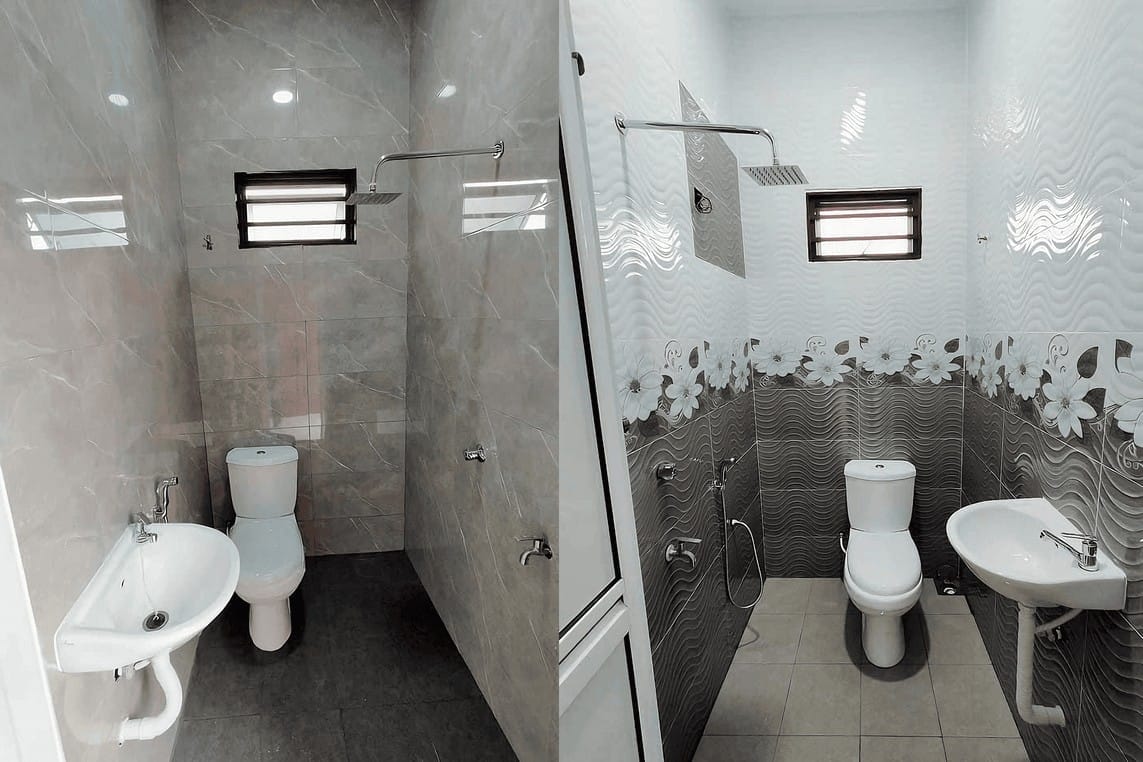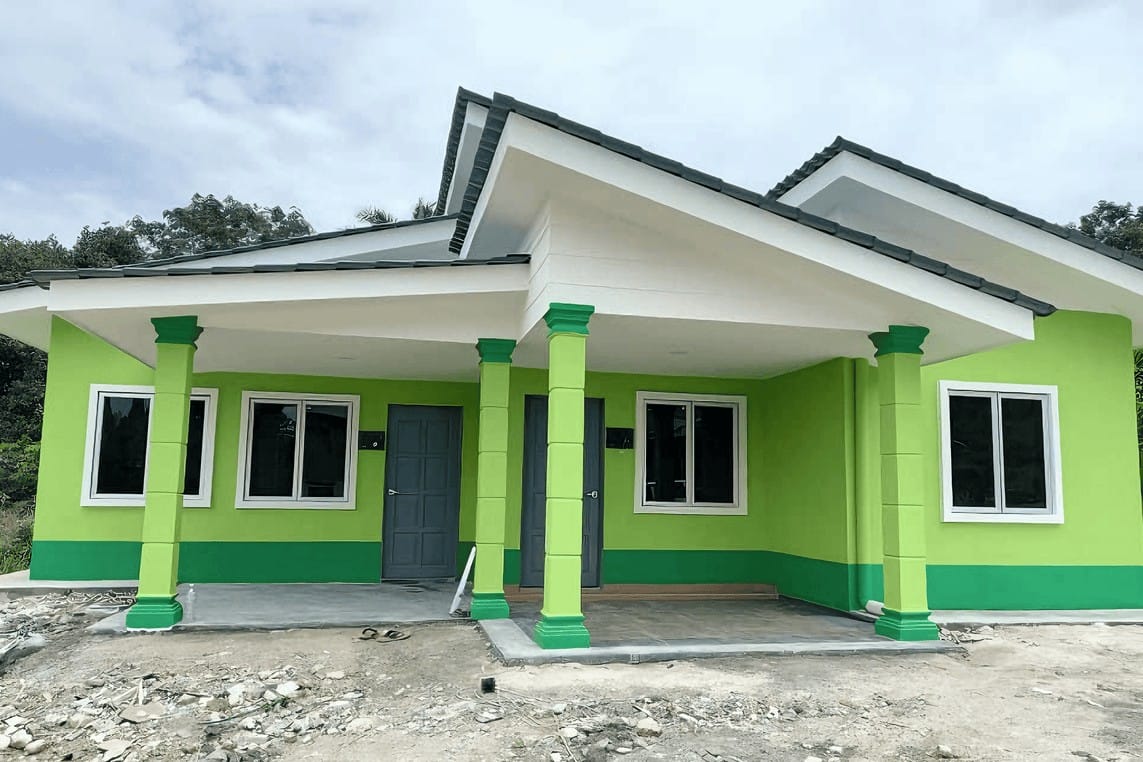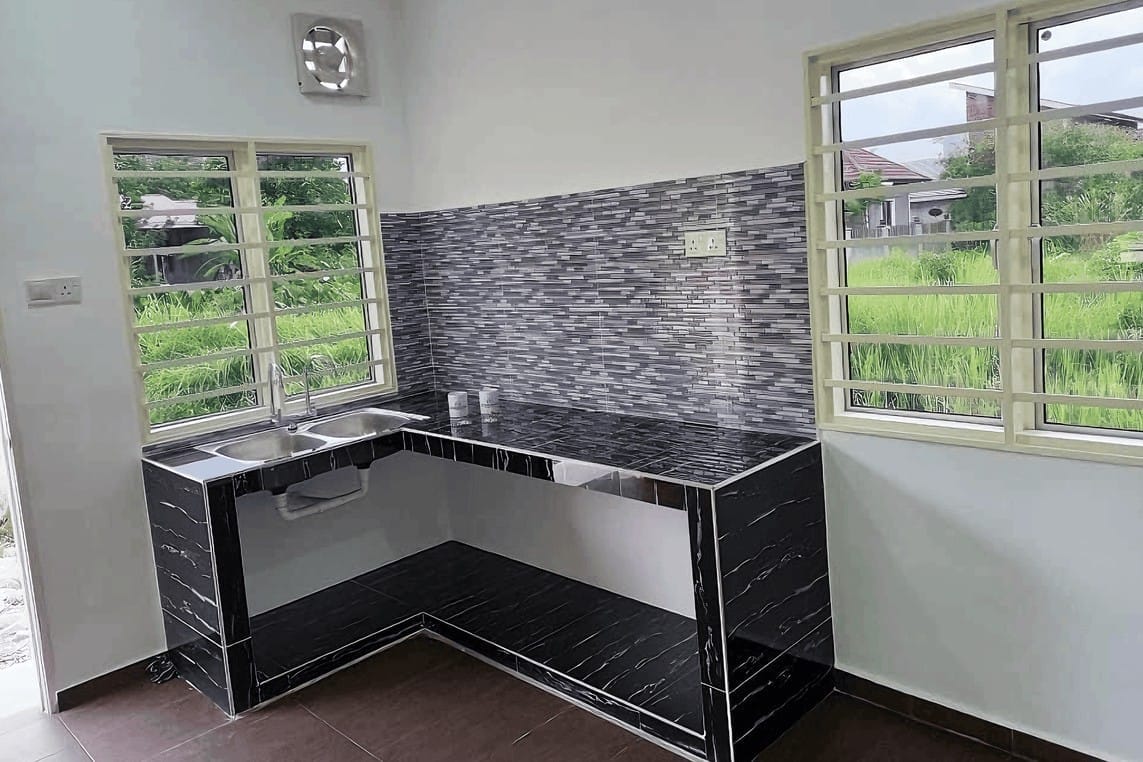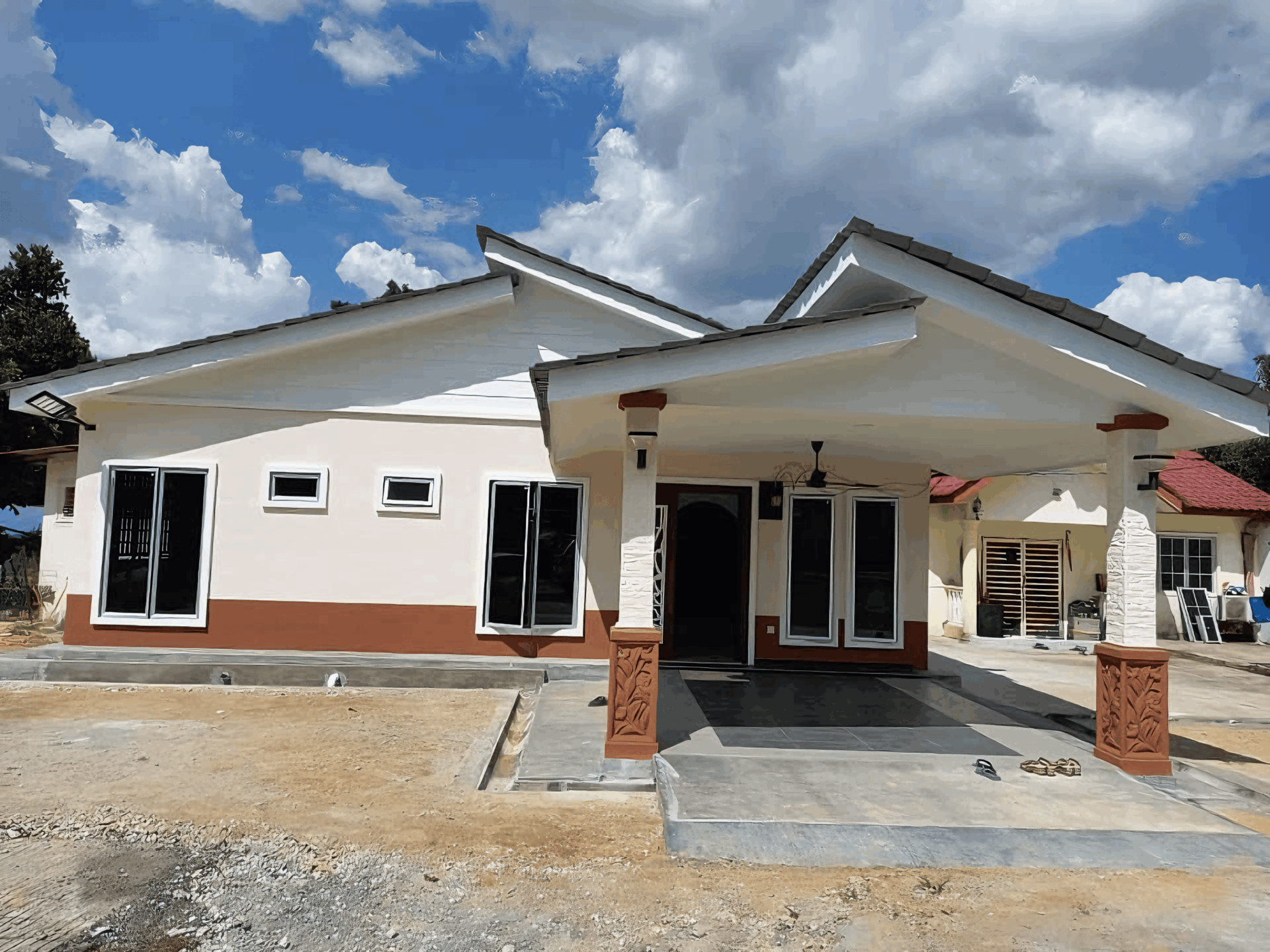Alright, let’s dive in! Imagine this: you’ve got a brilliant idea for a new project—maybe it’s a cozy café, a trendy boutique, or even a sleek office space. You’re excited, your vision is clear, and you’re ready to get things rolling. But hold up! Before you grab that shovel and break ground, there’s a critical step you can’t skip: cost estimating.
Now, before you roll your eyes, let’s chat about why getting a handle on costs is like the foundation of your entire construction dream. Think of it this way: a solid cost estimate is like a roadmap; it guides you through potential pitfalls, helps you avoid nasty surprises, and ultimately keeps your project on track and within budget. In Malaysia’s vibrant and sometimes unpredictable market, knowing your numbers is essential for turning your vision into reality without getting lost along the way. So, let’s break down why mastering cost estimating is your secret weapon before you start digging into that exciting new venture!
The Importance of Accurate Cost Estimating in Construction Projects
When it comes to embarking on a construction journey, the numbers involved can feel like a whirlwind. One of the essential steps prior to breaking ground is accurate cost estimating. Imagine diving into a project without a clear financial path—chaos ensues! Having a detailed estimate allows both the owner and contractor to foresee potential expenses, manage cash flow, and allocate resources effectively. This isn’t just about crunching numbers; it’s about painting a clear picture of the entire financial landscape of a project.
Moreover, accurate cost estimating serves as a safeguard against unexpected surprises down the road. Without it, you might find yourself facing escalating costs that could jeopardize the project’s completion. Here are some reasons why precision in estimating is vital:
- Budget Management: Ensures that you have a realistic budget that covers all aspects.
- Project Viability: Helps determine whether the project is financially feasible from the outset.
- Client Relations: Builds trust with clients as they see a commitment to transparency and accountability.
Lastly, the relationship between accurate cost estimates and project efficiency cannot be overstated. Construction projects are complex, and without proper estimates, timelines can easily spiral out of control. Here’s how precise estimating streamlines processes:
| Aspect | Impacts of Accurate Estimation |
|---|---|
| Resource Allocation | Ensures optimal use of materials and labor. |
| Timeline Management | Helps set realistic deadlines and milestones. |
| Risk Mitigation | Identifies potential financial pitfalls early on. |
In this context, being diligent with cost estimating is not just an administrative task; it’s a strategic move that can significantly affect the success of your construction project. Taking the time to focus on costs can save you much more than just cash; it can safeguard your reputation and ensure your projects are delivered on time and to the satisfaction of all stakeholders. So, before you lay that first brick, make sure you’ve got your financial house in order!

Understanding the Components of a Comprehensive Cost Estimate
Creating a detailed cost estimate involves multiple elements that come together to ensure that your financial planning is spot on. Firstly, it’s essential to consider direct costs, which include expenses like labor, materials, and equipment necessary for the project. These are the costs that directly tie into the construction process, and their accuracy can make or break your budget.
Next, don’t overlook indirect costs, often known as overheads, which can significantly impact your overall budget. These costs cover things such as site management, insurance, and permits. Understanding these expenses equips you to anticipate potential budget overruns and ensures that your project remains financially viable. A comprehensive cost estimate should clearly outline these indirect costs so you’re aware of the total financial commitment you’re making.
Lastly, a robust cost estimation should incorporate an appropriate contingency fund. Construction projects are notoriously unpredictable, and having a buffer can save you from financial strife down the road. It’s common to allocate a certain percentage of the total estimated cost for unexpected expenses. This proactive approach helps keep your project on track without compromising quality or timelines. Don’t forget to review and adjust your estimates as needed to better reflect any changes in job scope or market fluctuations.

The Risks of Underestimating Costs and Their Implications
When it comes to construction projects, underestimating costs is like playing a game of chance. You might think you’re saving money by cutting corners on your budget estimates, but in reality, this gamble can end up costing you much more in the long run. It’s essential to recognize that unexpected expenses can arise from various sources, such as fluctuating material prices, unanticipated labor costs, or even regulatory changes. Ignoring these factors can lead to an avalanche of financial strain, derailing even the most meticulously planned projects.
Furthermore, the implications of inaccurate cost estimating can extend beyond just finances. Projects that exceed their budgets often face delays, with timelines pushed back due to resources being stretched thin. This can lead to a loss of credibility with stakeholders and clients, potentially damaging future business opportunities. Not to mention, your team’s morale can suffer as they grapple with the stress of overcoming budgetary shortfalls and deadlines that seem ever-elusive. This cycle of pressure can stifle creativity and motivation among team members.
To illustrate just how impactful cost estimation can be, consider the following breakdown of common cost factors that are often overlooked:
| Cost Factor | Potential Impact |
|---|---|
| Material Price Fluctuations | Increase in overall project cost |
| Labor Rate Changes | Budget overruns and project delays |
| Permit and Regulatory Fees | Unexpected expenses and delays |
By understanding and preparing for these risks, you can avoid pitfalls that lead to overspending and project inefficiency. Investing time and resources into thorough cost estimating not only sets the foundation for a successful project but also ensures that everyone stays on the same page, reducing the chances of conflicts arising down the line. It’s all about paving the way to a smoother construction experience.

Strategies for Gathering Reliable Cost Data
Gathering reliable cost data is crucial for ensuring your project stays within budget and is completed on time. One effective strategy is to engage with local suppliers and contractors. Building relationships with these professionals can give you access to more accurate pricing based on current market conditions. Attend local trade shows or community events to network and gather firsthand insights. Also, don’t hesitate to request itemized quotes from multiple providers to compare costs effectively.
Another strategy involves leveraging technology and software tools designed for cost estimation. Numerous platforms offer features that allow you to input your project specifications and receive instant estimates based on historical data and market trends. Some tools even integrate with your project management software, providing a seamless flow of information. Key features to look for may include user-friendly interfaces, customizable templates, and real-time updates to reflect changing costs dynamically.
Don’t overlook the importance of conducting thorough research on construction costs in your specific region. This includes analyzing past projects similar to yours to extract valuable data. You can compile a table like the one below to summarize and visualize key cost areas, allowing for more straightforward comparisons and decision-making:
| Cost Category | Average Cost (RM) | Source |
|---|---|---|
| Materials | 5,000 | Local Supplier |
| Labor | 7,500 | Contractor Estimate |
| Permits | 1,200 | Local Authority |
| Equipment Rental | 2,000 | Rental Company |

Integrating Cost Estimation with Project Scheduling
When you think about project success, cost estimation and scheduling don’t just coexist; they need to dance together seamlessly. Effective integration of these two critical components ensures that projects not only stay within budget but also meet deadlines. The harmony of cost estimation allows project managers to allocate resources wisely, leading to realistic timelines that can adapt to unforeseen challenges. Without this collaboration, you risk finding yourself in a chaotic spiral of budget overruns and scheduling nightmares.
One of the keys to successful integration is establishing a dynamic feedback loop between estimating and scheduling teams. This way, if a cost-related shift occurs, it can immediately be reflected in the project timeline. For example, if the price of materials spikes unexpectedly, having a linked estimating tool can trigger a renegotiation of project deadlines based on updated financial projections. This isn’t just about reacting to changes; it’s about anticipating them. By preparing for variations in costs, a project manager can maintain faster decision-making and better communication across teams.
Additionally, utilizing tools and software that merge cost estimation with project scheduling can significantly improve efficiency. A table highlighting some popular tools might look like this:
| Tool Name | Key Features | Cost Estimation | Project Scheduling |
|---|---|---|---|
| Microsoft Project | Resource management, reporting | Yes | Yes |
| Primavera P6 | Complex project scheduling | Advanced | Advanced |
| Smartsheet | User-friendly interface | Basic | Basic |
Adopting such tools not only streamlines the project workflow but also fosters a culture of collaboration between financial and operational teams. Connecting these aspects ensures that when you finally break ground, every dollar and every day of work is accountable, aligning perfectly with the strategic vision of the project.

Accurate cost estimation is crucial for any construction project, and leveraging the right tools can make a world of difference. Software solutions such as building information modeling (BIM) not only allow for 3D visualization but also integrate cost data within the design phase. This means that you can foresee potential expenses right from the get-go and adjust your plans accordingly. Additionally, using cloud-based estimation tools can enhance collaboration among team members, making it easier to share updates and track costs in real time.
Moreover, harnessing the power of data analytics can transform your cost estimation process. By analyzing historical project data, you can identify patterns and trends that will allow for a more precise estimation of future projects. A simple analysis can reveal insights like material cost fluctuations or labor expense averages that can be invaluable for budgeting. These analytics tools allow you to create more realistic estimates tailored to current market conditions.
Lastly, incorporating mobile applications into your workflow can significantly aid in on-site decision-making. With apps specifically designed for cost tracking and management, project managers can gather real-time data while engaging with contractors and suppliers. This ensures that any changes or unexpected costs can be reported and addressed promptly. Here’s a quick comparison of popular tools that might suit your needs:
| Tool/Technology | Main Features | Best For |
|---|---|---|
| BIM Software | 3D modeling, cost integration | Design-centric projects |
| Cloud-based Estimation Tools | Real-time collaboration | Collaborative teams |
| Data Analytics Software | Historical data analysis | Budget optimization |
| Mobile Apps | On-site tracking, instant updates | Field management |

Best Practices for Revising Estimates as Projects Progress
Revising estimates as your project moves along is key to keeping things running smoothly. It’s all about being adaptable. Set regular intervals to evaluate your budget and explore how project developments affect costs. This can include changes in materials, labor rates, or even project scope. By maintaining a flexible approach, you can catch potential issues before they snowball, allowing for better decision-making.
Keep your communication lines open with your team. Encourage everyone to provide feedback on budget implications whenever adjustments are made. Team members often have insights into how changes can affect overall costs, which can be invaluable. A few tips to implement might include:
- Weekly check-ins: Schedule short meetings to discuss any ongoing changes.
- Establish clear roles: Ensure everyone knows who to communicate with regarding budget matters.
- Document everything: Keep a record of discussions related to estimating and revisions.
Using a proper tracking method can substantially enhance your revision process. Creating tables can help visualize your estimates alongside actual expenses. Here’s a simple example of how you can categorize your costs:
| Cost Category | Initial Estimate (RM) | Revised Estimate (RM) |
|---|---|---|
| Materials | 15,000 | 16,500 |
| Labor | 20,000 | 18,000 |
| Permits | 5,000 | 5,500 |
This simple method allows you to see where your budget is shifting and helps in making informed changes on the fly, ensuring your project remains on track financially.

Building a Collaborative Team Approach to Cost Management
When diving into cost management, fostering a spirit of collaboration is key. It’s not just about the finance team crunching numbers; it involves everyone from project managers to field workers. By cultivating a teamwork-oriented culture, you can unlock creative solutions and improve accuracy in cost estimating. Everyone’s insight is valuable, leading to a more comprehensive understanding of potential costs and benefits. Engaging team members in regular discussions about budgets and forecasts helps in identifying risks, driving collective problem-solving.
Creating a collaborative atmosphere can be further enhanced by leveraging technology. Consider using project management tools that allow real-time data sharing, enabling team members to stay in sync with cost updates. Here are a few benefits of integrating tech into your team approach:
- Transparency: Everyone can see where the budget stands and what adjustments need to be made.
- Efficiency: Automated tracking can help minimize errors in manual data entry.
- Engagement: Interactive platforms encourage team members to contribute meaningfully to discussions and decisions.
To ensure that your team’s collaborative efforts are effective, establish clear roles and responsibilities. Defining who is responsible for what can streamline communication and accountability. Below is a simple table to illustrate potential roles within the team:
| Role | Responsibilities |
|---|---|
| Project Manager | Oversee the budget, ensure compliance with financial protocols. |
| Cost Estimator | Accurate calculations and market research to inform the budget. |
| Field Supervisor | Provide insights on labor and materials based on day-to-day operations. |
To Conclude
As we wrap things up, let’s take a moment to reflect on just how crucial cost estimating is before you dive into any ground-breaking project. Like we mentioned, it’s not just about crunching numbers; it’s about paving the way for success, whether you’re building a cozy home in Penang or launching a new venture in Kuala Lumpur. Skipping this step might feel tempting, but trust me, a little bit of planning can save you a lot of headaches down the road.
So, if you’re gearing up to break ground, take a deep breath, roll up your sleeves, and get serious about your cost estimates. With the right tools and a bit of know-how, you’ll not only stay within budget but also lay a solid foundation for your dreams to take shape. After all, every great project starts with a plan—so let’s make yours a great one! Happy estimating, and here’s to building your future one step at a time!
Source link
kontraktor rumah
bina rumah
pinjaman lppsa
pengeluaran kwsp
spesifikasi rumah
rumah batu-bata
pelan rumah
rekabentuk rumah
bina rumah atas tanah sendiri
kontraktor rumah selangor
rumah banglo




